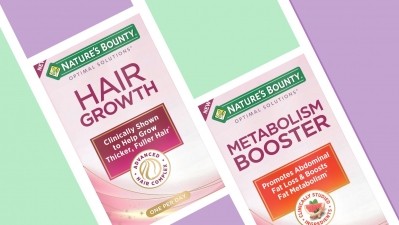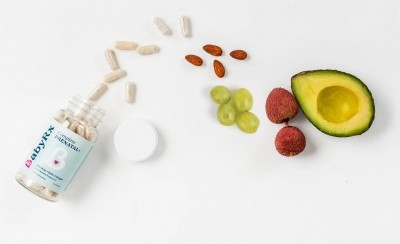Women’s health claims: What you can and cannot say

Supplement lines are increasingly focused on the female consumer and her specific needs, with the biggest segments including prenatal and postnatal supplements, menopause, bone health, and reproductive health supplements.
The FDA polices claims made on dietary supplements, and there are examples where women’s health products have attracted the ire of the Agency. For example, a Georgia-based company received a warning letter in 2020 for “unapproved drug claims” for (amongst other things) making the statement, “alleviate the effects of menopausal syndrome…menopausal and sleeping disorders”.
The choice of words is important. Jennifer Adams, partner at Amin Talati Wasserman, told us: “Dietary supplements can make a number of claims surrounding women’s health, and in particular claims relating to reduction of symptoms of menopause, PMS, and general hormone balance support.”
“Back in the day when FDA was promulgating its regulation on “disease claims,” the preambles to the proposed and final rules contain significant insight into the agency’s thinking on what is and is not a permissible topic for structure/function claims. One point of contention surrounded normal states of the body that in and of themselves are not diseases. Ultimately in the final rule, FDA agreed that normal conditions associated with natural body states and processes are not diseases,” she said.
Michael McGuffin, president of the American Herbal Products Association (AHPA), noted that the 2000 final rule, entitled “Regulations on Statements Made for Dietary Supplements Concerning then Effect of the Product on the Structure or Function of the Body”, included revisions by FDA that acknowledged that compliant “structure function” claims for dietary supplements may refer to effects on conditions “associated with such natural states or processes as menopause, aging, adolescence, and pregnancy”.
The specific text from the FDA revision reads:
“The proposed rule stated that menopause, aging, and pregnancy are not themselves diseases but that certain conditions associated with them are diseases if they are recognizable to consumers or health professionals as abnormal. Many comments objected to classifying as diseases such common conditions as hot flashes, premenstrual syndrome (PMS), and decreased sexual function associated with aging. In response to these comments, FDA has revised proposed § 101.93(g)(2)(iii). Common conditions associated with natural states or processes that do not cause significant or permanent harm will not be treated as diseases under the final rule. For example, hot flashes, common symptoms associated with the menstrual cycle, ordinary morning sickness associated with pregnancy, mild memory problems associated with aging, hair loss associated with aging, and noncystic acne will not be treated as diseases under this provision. Uncommon or serious conditions like senile dementia, toxemia of pregnancy, severe depression associated with the menstrual cycle, and cystic acne will continue to be treated as diseases under the final rule.” 65 Fed. Reg. 1000, 1000 (Jan. 6, 2000) (emphasis added).
"A natural state or process”
Adams noted that FDA reiterated this position in the 2002 “Small Entity Compliance Guide on Structure/Function Claims”:
What is meant by "a natural state or process?"
Some natural states or processes such as aging, menopause, and the menstrual cycle are not themselves diseases, but can be associated with abnormal conditions that are diseases.
What is the determining characteristic when a claim to effect these states is a disease claim?
The conditions associated with these stages or processes can vary from common, relatively mild abnormalities, for which medical attention is not required, to serious conditions that can cause significant or permanent harm if not treated effectively. Two criteria determine if such a condition will be considered a disease: (1) if the condition is uncommon; or (2) if the condition can cause significant or permanent harm. For purposes of the rule, a condition is uncommon if it occurs in fewer than one-half of those experiencing that stage or process. A condition can cause significant or permanent harm if it must be treated effectively to prevent that harm and for which effective treatments are available.
Examples of acceptable structure/function claims are "mild memory loss associated with aging," "noncystic acne," or "mild mood changes, cramps, and edema associated with the menstrual cycle."
Examples of disease claims are "Alzheimer's disease or senile dementias in the elderly," "cystic acne," or "severe depression associated with the menstrual cycle."
“So, FDA has drawn a clear line that normal symptomology is completely permissible for women’s health products, while abnormal conditions are not,” said Adams. “And if you think about it, this makes good sense with the overarching idea of supporting the healthy structure/function of the body.
“Off hand, some examples in recent memory of claims that may have gone too far are those related to PCOS and infertility.”
















